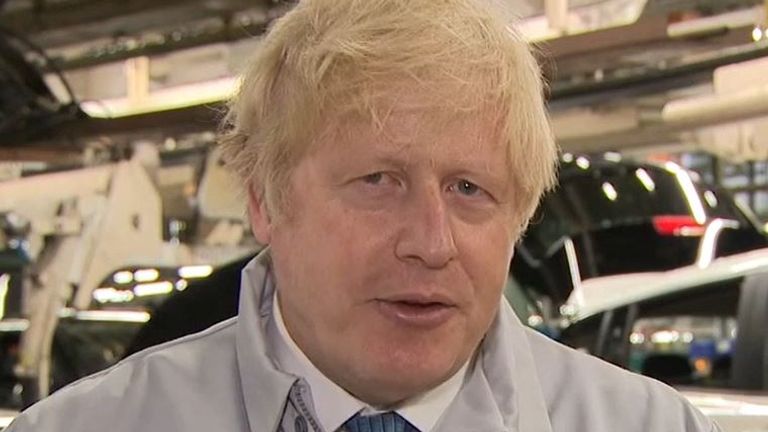COVID-19: Half of Britons meeting indoors as 50% return to the office
Nearly half of British adults met up with friends and family indoors last week as 50% of working adults are back in the office, the latest figures reveal.
Lockdown restrictions still state people should work from home if they can but there has been a steady increase in people going back into the office since mid-February when 34% were travelling into work.
Despite a limit of six people meeting up indoors, numbers of people meeting up outdoors has continued to fall across Great Britain to just over half of adults, the latest Office for National Statistics (ONS) figures, from the five days to 27 June, show.
And 68% of adults reported always or often maintaining social distancing – a reduction from 85% in mid-April when restrictions began to ease.
Anxiety levels remain the same as the previous week – at 3.8 out of 10 – after increasing in recent weeks while people’s measures of life satisfaction are at seven out of 10, down slightly from 7.1 the week before.
Stage four of the roadmap out of England’s lockdown, which means the majority of restrictions will be lifted, was paused for four weeks ahead of the latest survey.
As cases continue to rise, England remains in stage three – with only six people from different households allowed to meet inside and 30 people outside. Scotland, Wales and Northern Ireland have also delayed lifting restrictions.
Around one in 260 people in private households in England had COVID in the week to 26 June – up from one in 440 in the previous week – making it the highest level since the week to 27 February.
Cases of the Delta (Indian) variant have risen nearly four-fold in less than a month, Public Health England (PHE) data published on Friday revealed.
A total of 161,981 confirmed and probable Delta variant cases have now been identified in the UK as of 30 June – up by 50,824 (46%) on the week before.
Of those cases, 148,538 have been in England, 10,185 in Scotland, 1,749 in Wales and 1,509 in Northern Ireland.
The cases are rising rapidly, but nearly all adults (96%) have received a vaccine, or would likely to have one if offered, an increase since the immunisation programme started in December but the same as the previous week.
There continues to be sharp differences in hesitancy rates among different ethnic and religious groups, with 18% of black/black British adults hesitant, 11% of adults with mixed backgrounds, 4% for white adults and 3% for Asian/Asian British adults.
About one in seven (15%) Muslim adults showed hesitancy, compared with 9% of Hindus and 3% of Christians.
Young people, aged 16 to 29, continue to have a positive outlook towards COVID-19 vaccines, with 93% saying they have had or would have the vaccine.
However, when broken down to just 16 to 17 year olds, 14% of that age group said they were hesitant about getting a coronavirus vaccine, while 9% of 18-21 year olds and 10% of 22-25 year olds reported hesitancy.
And 89% of adults have now had at least one vaccine dose, up from 84% the week before, while 63% have had their second, up one percentage point since the previous week.
The government has pledged to offer every adult a vaccine by 19 July.
It has said the continued success of the vaccine programme is crucial to easing restrictions by that date.
Dr Jenny Harries, chief executive of the UK Health Security Agency, said: “Cases across the UK continue to rise and it is incredibly important that we do not forget to be careful.
“The best thing we can do to protect ourselves and the people we love is to get the vaccine if eligible, get tested twice a week and practise ‘hands, face, space, fresh air’ at all times.
“Although cases are rising, we are not seeing a proportional rise in the number of people who are being admitted to hospital.
“The data suggest this is testament to the success of the vaccination programme so far and clearly demonstrates the importance of getting both doses of the vaccine.”
Source: Read Full Article




